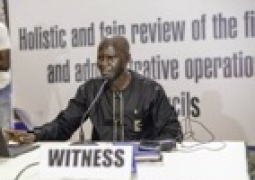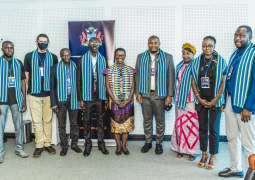
Sanna Dahaba made this disclosure on Thursday at a day’s stakeholder validation on the National Disaster Management Agency’s (NDMA) Policy and Strategy 2024 to 2033.
According to officials, the event, held at Tamala/Kalimba Hotel, is said to be a crucial step towards improving Disaster Risk Reduction in the country by putting up a robust and effective policy and strategy to address hazards in the country.
He, however underscored the importance of the validation, recalling the first National Disaster Management Policy and Strategy was formulated way back in 2008 and has since served its purpose.
Dahaba acknowledged that the ever-changing nature of disaster over time has rendered the current policy obsolete. This, he added, prompted the agency to obtain new NDMA policy and strategy to better align with Sendai Framework 2015 to 2030, which is the global framework on Disaster Risk Reduction.
“Today’s validation is of particular importance to the agency as this policy and strategy will serve as the blueprint for disaster prevention, preparedness, mitigation, response and recovery. The document will also guide us to deliver efficient activities designed to enhance environmental sustainability by strengthening community’s resilience to external shocks, vulnerability and exposure to natural and human induced disasters.”
The NDMA boss acknowledged that in today’s world of growing challenges and vulnerabilities, communities can’t afford not to stand together. To that end, he said his agency remains committed to building communities’ resilience and to provide relevant and timely quality support to disaster affected families.
This policy and strategy being validated, he added must now be accompanied by changes in the way people conduct business structures in institutions.
He expressed gratitude to the World Bank for providing the necessary resources to undertake this process of updating the national policy and strategy.





